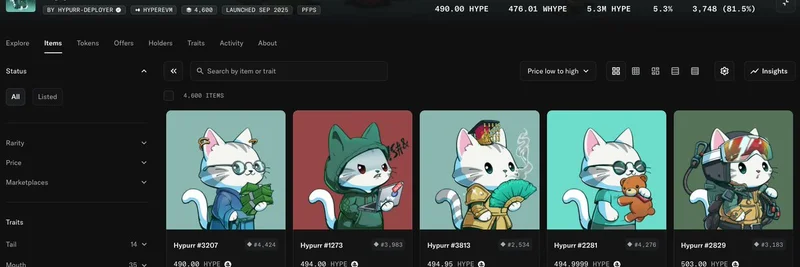In the fast-paced world of blockchain, where meme tokens can skyrocket or plummet in minutes, the underlying infrastructure's reliability is everything. A recent post from legal scholar Mikolaj Barczentewicz, under his handle @0xMikolaj, sheds light on an important development in Ethereum's evolution. He discusses the potential inclusion of Fork-choice Enforced Inclusion Lists (FOCIL, via EIP-7805) in the upcoming Glamsterdam upgrade, framing it not just as a technical tweak but as a step toward stronger legal protections for the network.
Here's what he shared in his tweet:
New on Good crypto: FOCIL on Ethereum and legally credible neutrality
The debate over whether Ethereum's next major upgrade (Glamsterdam) should include fork‑choice enforced inclusion lists (FOCIL, EIP‑7805) has been framed primarily as an engineering and incentive‑design question. I want to reframe it as a legal‑design question:
What does FOCIL do to the distribution of practical discretion among base‑layer actors, and does that improve the case for what I have elsewhere called "legally credible neutrality"?
My short answer is yes—mostly. FOCIL converts what is today a fragile, norm‑based non-censorship aspiration into a protocol‑enforced constraint for most validators and proposers, which strengthens the argument that they should be treated in law as neutral infrastructure rather than as editors of user activity.
However, at the same time, FOCIL introduces a new locus of discretion in the inclusion‑list committee.
You can check out the original post here.
As someone who's navigated the crypto media landscape, I see this as a pivotal moment for meme token enthusiasts. Let's break it down simply, explaining the tech and legal jargon along the way, and explore why it matters for your favorite dog-themed coins or viral projects.
Understanding FOCIL: A Shield Against Censorship
FOCIL stands for Fork-choice Enforced Inclusion Lists. In plain English, it's a mechanism designed to ensure that transactions on Ethereum aren't easily ignored or censored by powerful players in the network. Today, block builders—often specialized entities that assemble transactions into blocks—can sometimes choose what to include or exclude, potentially under pressure from regulators or for profit motives via MEV (Maximal Extractable Value, which is basically the value builders can extract by reordering or inserting transactions).
According to Ethereum co-founder Vitalik Buterin, FOCIL works by creating a committee of multiple "inclusion list creators" (say, 16 stakers chosen randomly) for each block slot. These creators compile lists of valid transactions that must be included in the next block. The actual block builder can reorder things or add more, but they can't skip what's on those lists. To censor a transaction, every member of the committee would have to agree to exclude it, making it exponentially harder.[11] This setup, detailed in Buterin's exploration of Ethereum's future protocol directions, aims to decentralize control and promote fairness.[13]
For meme tokens, this means your impulsive buys or sells during a pump won't get stuck because some builder decides to play gatekeeper. Think about high-stakes moments in DeFi, like liquidations or arbitrage, which often involve meme assets—FOCIL could reduce delays from seconds to minutes in worst-case scenarios.
What Is "Legally Credible Neutrality"?
Barczentewicz, a University of Surrey academic specializing in crypto law, coined this term to describe a blockchain's ability to be seen as impartial infrastructure in the eyes of the law. Much like how internet service providers aren't held liable for every website their users visit, Ethereum validators and proposers shouldn't be treated as "editors" curating content. Instead, they're just pipes facilitating data flow.
In his paper, he argues that designing protocols to minimize human discretion at the base layer strengthens this neutrality, making it harder for regulators to pin responsibility on network operators for illicit activities.[9] FOCIL fits perfectly here: by hardcoding non-censorship rules into the protocol, it shifts Ethereum from relying on social norms to enforceable mechanics. This could shield the network from legal challenges, especially in jurisdictions cracking down on crypto.
However, as Barczentewicz notes, there's a catch—the inclusion-list committee becomes a new point where discretion could creep in. If committee members collude or face external pressures, it might undermine the gains. Still, overall, he sees it as a net positive.
Why Meme Token Communities Should Care
Meme tokens aren't just fun; they're a massive part of the crypto economy, often built on Ethereum or its layer-2 solutions. But they've faced issues like transaction front-running (a form of MEV) or even outright censorship attempts, such as when builders comply with sanctions lists.
With FOCIL, the network becomes more resistant to these threats, ensuring meme projects can operate freely. For developers, it means building without fear of arbitrary exclusion. For traders, it translates to more reliable execution during hype cycles. And from a legal standpoint, stronger neutrality could prevent scenarios where meme tokens are targeted by overzealous regulations, treating the blockchain as a neutral platform rather than a complicit actor.
This ties into broader trends, like Vitalik's push for frameworks that reaffirm Ethereum's impartiality.[2] As meme insiders, keeping an eye on upgrades like Glamsterdam helps you stay ahead, whether you're hodling, flipping, or creating the next viral sensation.
In summary, FOCIL isn't just tech talk—it's a legal lifeline that could make Ethereum a safer playground for meme tokens. If you're deep in the meme game, follow experts like @0xMikolaj for more insights, and dive into resources like Buterin's blog or Barczentewicz's paper to level up your knowledge. What's your take on how this upgrade might shake up the meme token scene?




